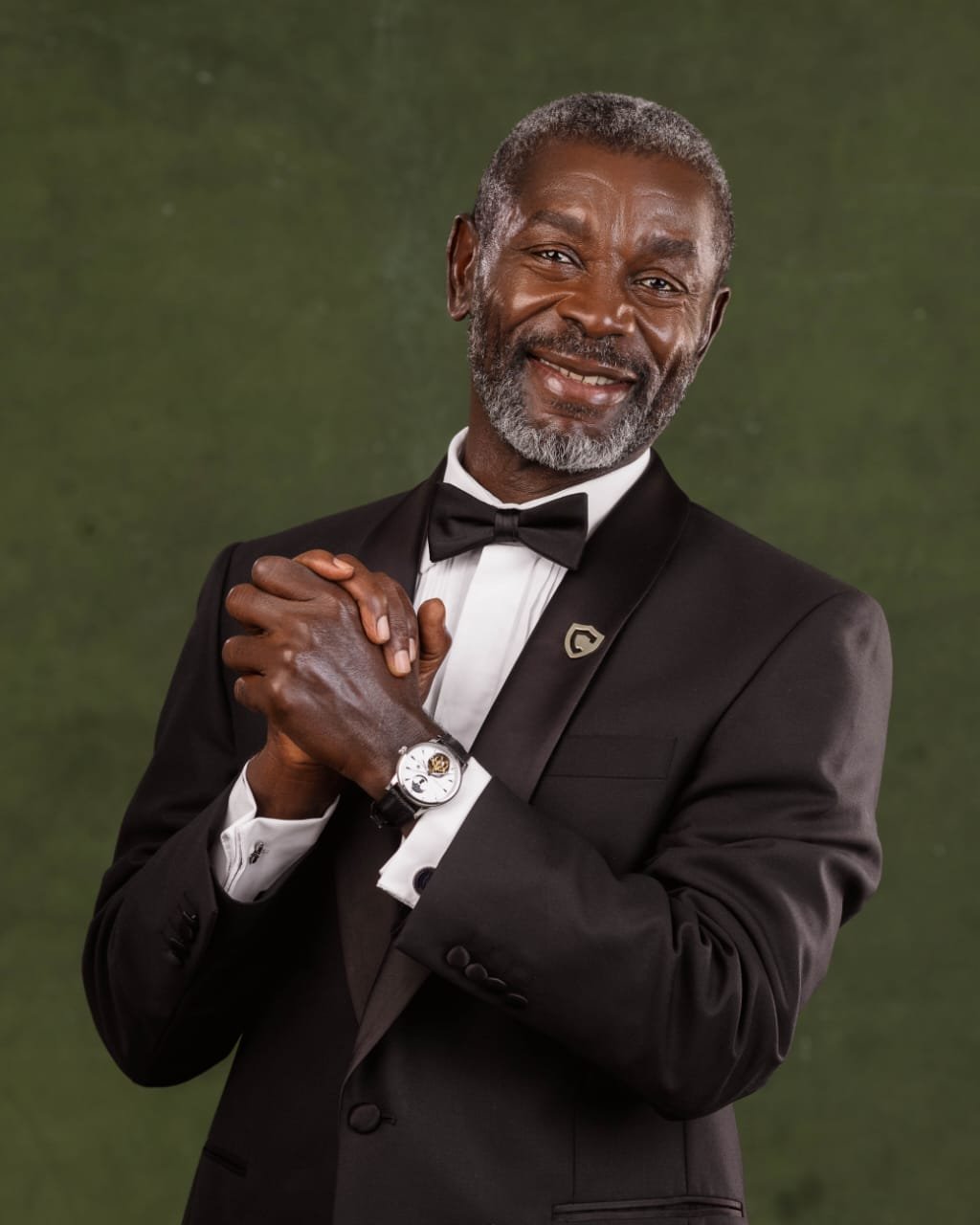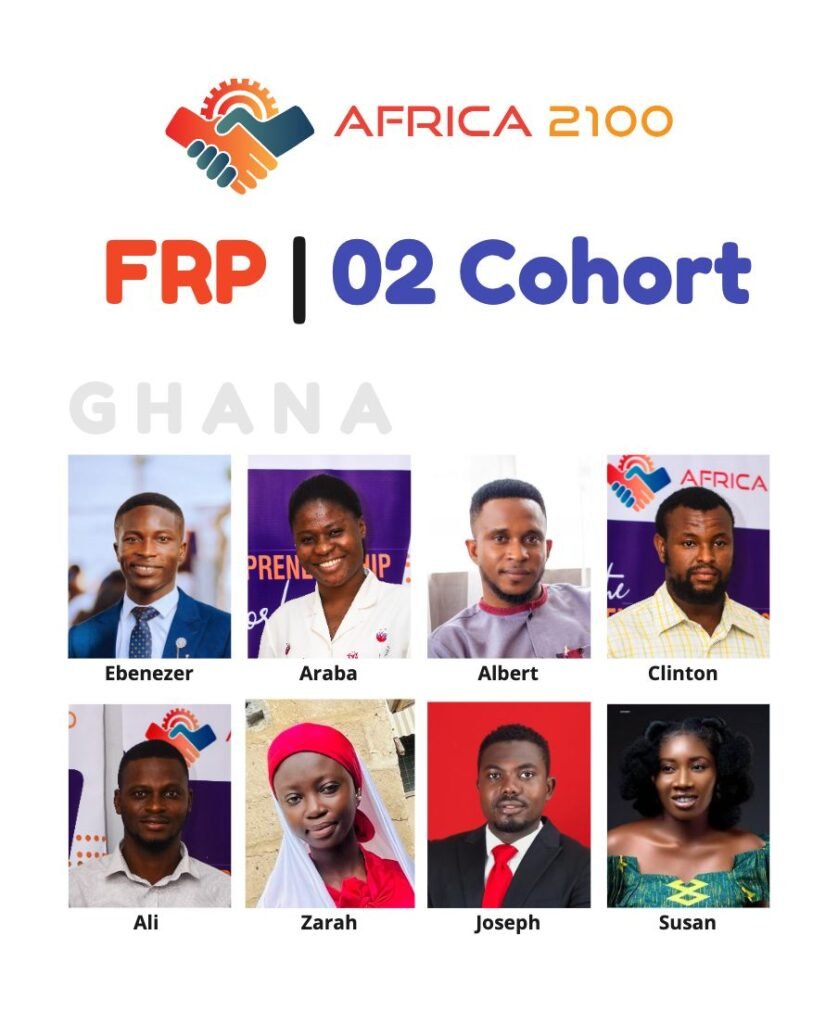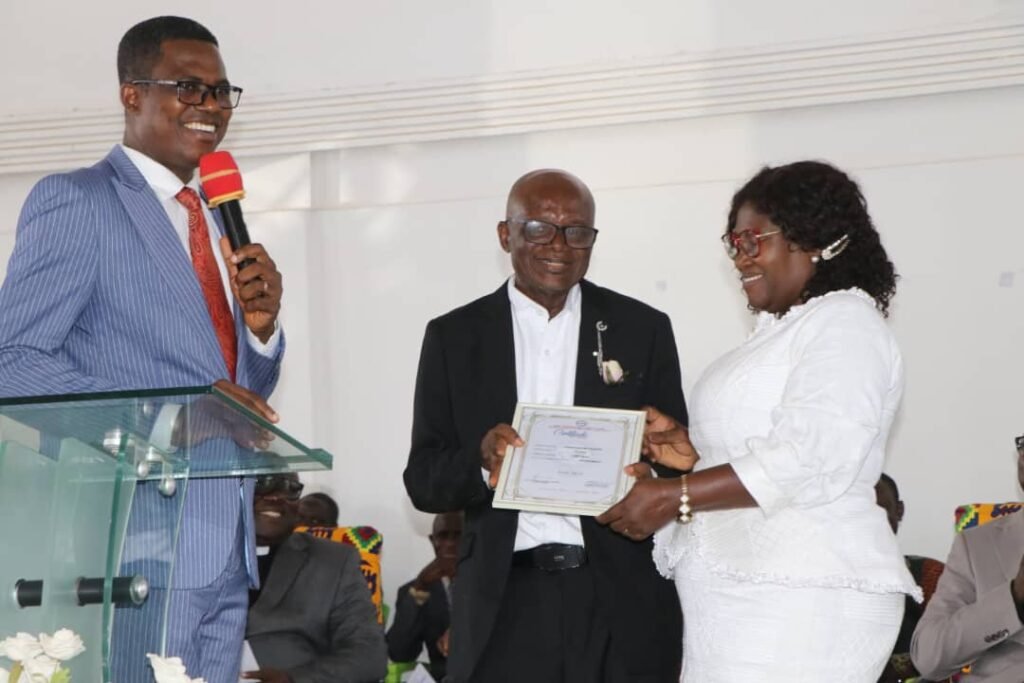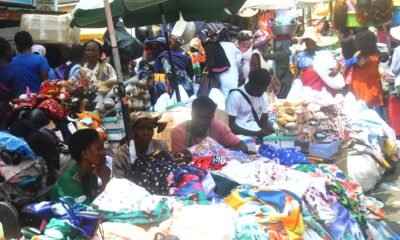News
Capt. Prince Kofi Amoabeng, Rtd. Appointed to Africa 2100 Board of Advisors

Africa 2100 NFP is has announced the appointment of Capt. Prince Kofi Amoabeng, Rtd. Affectionately called(PK) to its Board of Advisors.
He brings extensive experience across multiple industries and a proven track record of driving growth and innovation—qualities that align perfectly with Africa 2100’s mission and strategic objectives.
In his role on the board,Mr.Amoabeng will leverage his expertise in corporate governance, strategic planning, and operational efficiency to help guide the organization toward sustained success.

He joins an esteemed group of professionals committed to advancing Africa 2100’s mission: improving lives in underserved communities by empowering aspiring entrepreneurs with the education and support they need to succeed.
Amoabeng is a former military officer with the Ghanaian Armed Forces and is widely recognized for his impact on the lending industry in Ghana.
He founded Unique Trust Financial Services with just three employees, transforming it into the successful holding company UT Holdings, with multiple subsidiaries.
In addition to his entrepreneurial achievements, he is the author of several books on leadership and management and is the founder of the PK Amoabeng Leadership Foundation.
His contributions have earned him numerous accolades, including the Lifetime Achievement Award for Innovation in Africa and Overall Best Entrepreneur at the Ghana Entrepreneurs Award.
They added,“We are thrilled and honored to welcome PK to our board,” said Chudi Obiaya, Founder of Africa 2100. “His insight and experience will be invaluable as we continue to expand efforts to empower young people through entrepreneurship and deepen our impact in the community. We look forward to his contributions.”
In a related development the African 2100 Cohort two has been launched
The participants will be groomed to pitch their business to potential investors and with the training it is expected that would be able to demonstrate their readiness for investment.
During the 12 weeks of grooming, they would go through the tenets of understanding their customers, business ideation, pricing, viability of business and personal development among others.
At the end, the would have the opportunity on the demonstration day to pitch their business to stakeholders and potential investors.
In a related development the next Africa 2100 Foundation Readiness Program Cohort has been launched
Participants will be equipped with essential business fundamentals, which they will actively apply to their ventures throughout the program. By the end of the program, they will be prepared to demonstrate their readiness to secure the resources needed to achieve their next business milestones.
The curriculum will comprehensively cover critical topics such as business ideation, customer understanding, pricing strategies, and business viability, among others, ensuring a well-rounded entrepreneurial foundation.
The program will culminate in a Showcase event, providing participants the opportunity to pitch their business ideas to a distinguished audience of stakeholders and potential investors, highlighting their growth, innovation, and readiness for investment.”
News
Craze for x’mas shopping: Crowded markets, low patronage

Vendors of food and other wares associated with the Christmas celebration have expressed surprise at the low patronage despite the increased number of visitors to some of the major markets across the capital.
Four days to the celebration(Christmas), the markets are filled with various products ranging from food, clothing, livestock and many other stuff, but according to the vendors, patrons are doing more ‘window’ shopping.




The Spectator on visits to some of the markets in the capital, notably the Odawna, Makola, Accra Central Business District, New Town and others made similar observations as shoppers crowd them but did little in terms of purchases.
The paper also observed that majority of vendors, originally selling other wares have switched to product related to the festive season.
What it means is that there are a lot more clothes, food and vegetables, livestock and poultry, toys, firecrackers, drinks of different types and many others on display.




The markets have also stretched to the pedestrian pavement, leaving very narrow spaces for commuters to move about freely.
That, in addition to a few of the female vendors dressed in coloured attires to reflect the occasion, has heightened the euphoria, leaving the low sales as the only headache for the vendors.
Speaking with this paper, they sounded very optimistic, believing that sales would improve in the last few days to the yuletide.
According to them, there was the opportunity to sell beyond Christmas as the New Year celebration offers similar opportunity to trade the same wares.
They urged patrons to throng the markets to shop since prices were quite moderate and products affordable for all.
News
Retirement service for Elder John Ackom-Asante,3 others

Retired Deputy Editor of The Spectator, Elder John Ackom-Asante, was last Sunday honoured by the Church of Pentecost Windy Hills District in Kasoa in the Central Region, with a retirement thanksgiving service, after serving for 26 year as an Elder of the church.
He was honoured with a citation and certificate of service along with three other elders who served in the capacity for various years.





Elder Ackom-Asante was baptised at the Darkuman Central Assembly in 1979 and ordained as an Elder in 1997.
The citation read “Your selfless service, zeal, willingness to relate wholeheartedly and your desire to effect change has gone a long way to shape the lives of many people in the church and the nation over the 26 years of your dedication to the service of the Lord.”
Elder Ackom- Asante held many positions at the Darkuman Central Assembly, Obuasi in the Ashanti Region and Tema, serving in various capacities as youth and evangelism ministry leader and marriage counsellor.







He was the founding member of the Darkuman Christian Fellowship, a member of the Greater Accra Christian Fellowship; member of Bible Society of Ghana; founding member Obuasi Chapter Full Gospel Businessmen Fellowship International and founding member of New Times Corporation Christian Fellowship and Chaplain, Methodist University Tema Campus 2009- 2010.
As a professional journalist, Elder Ackom-Asante combined effectively and efficiently his duty as a member and elder of the church and the demands of his profession, with admiration from the church, kith and kin, till his retirement on December
From Alhaji Salifu Abdul-Rahaman, Kasoa











